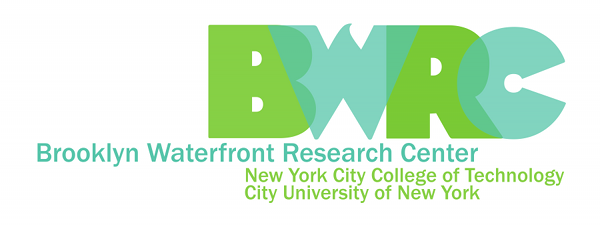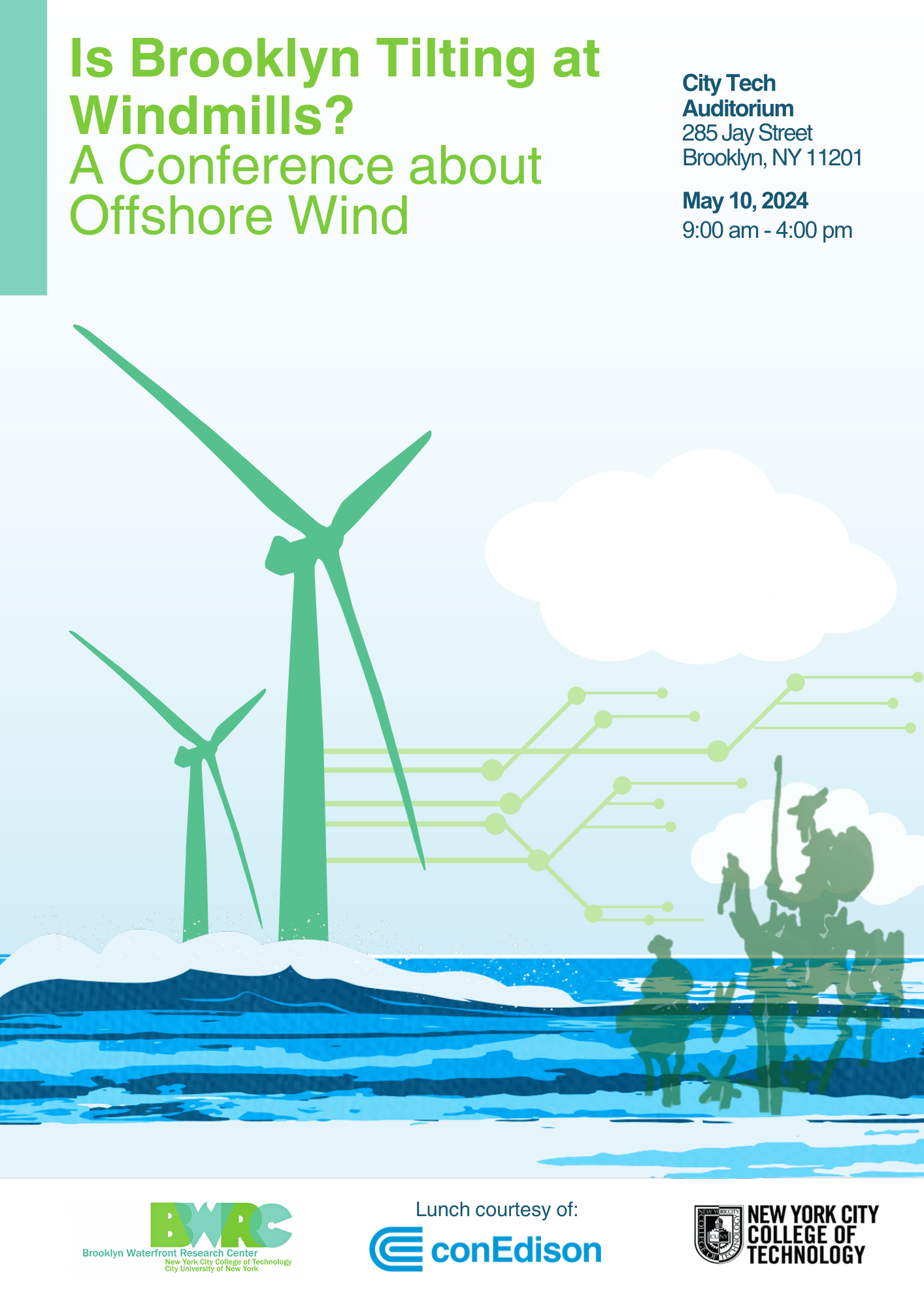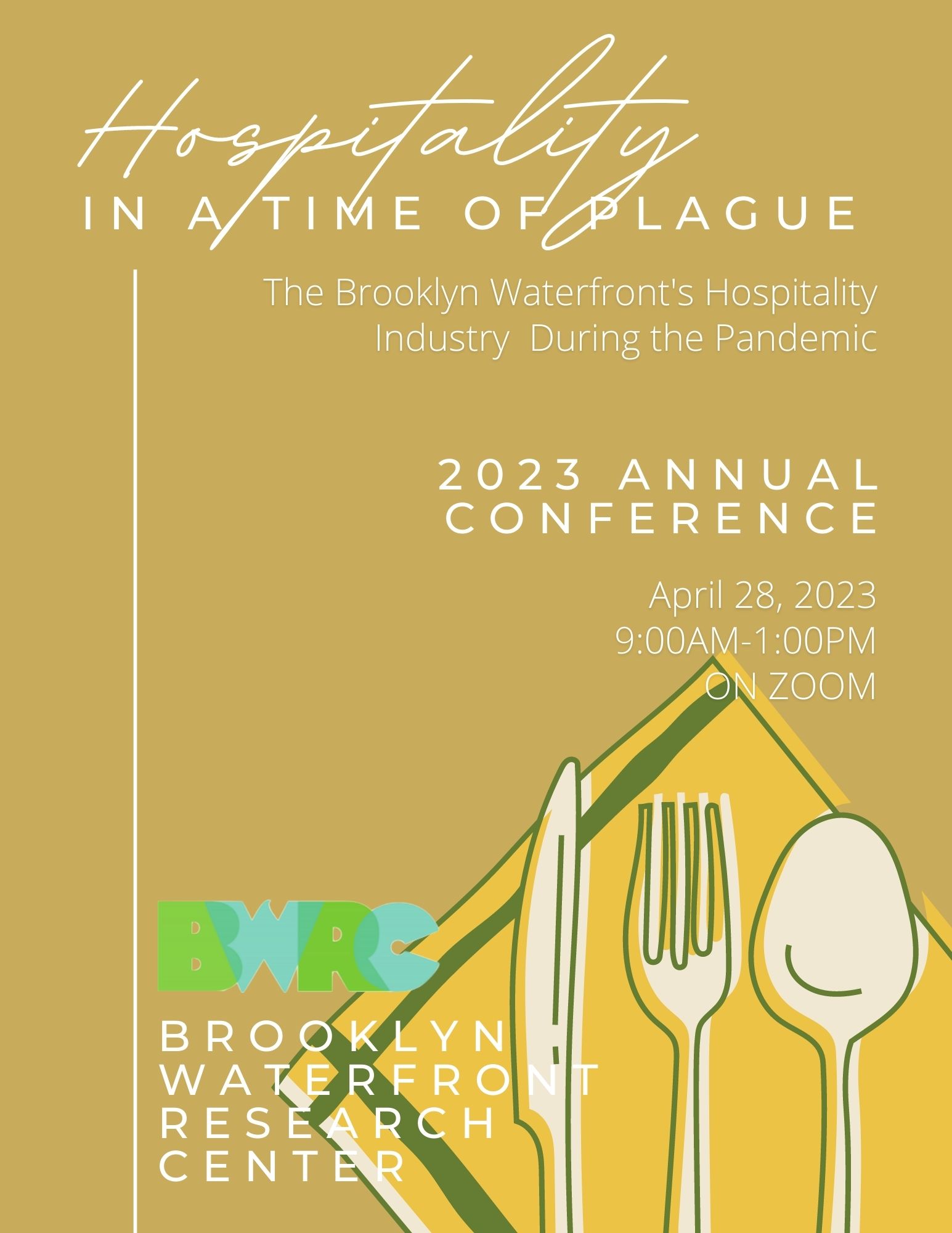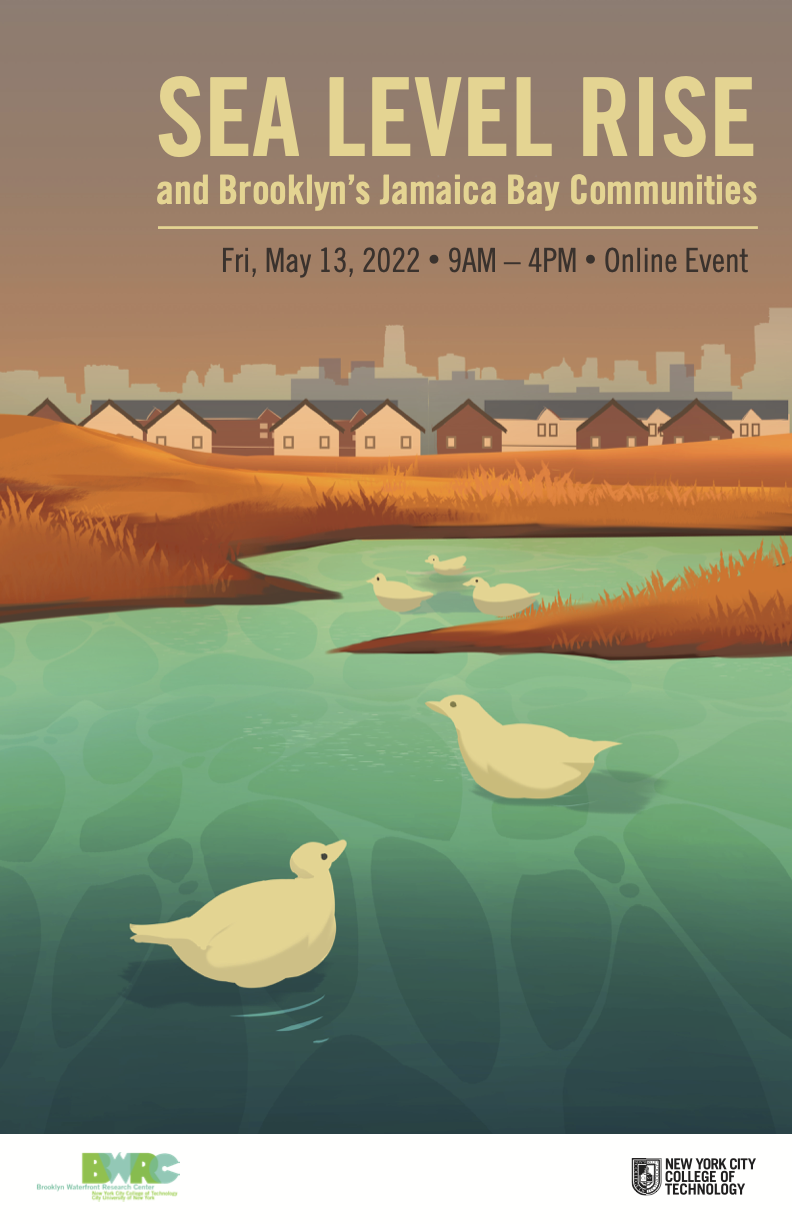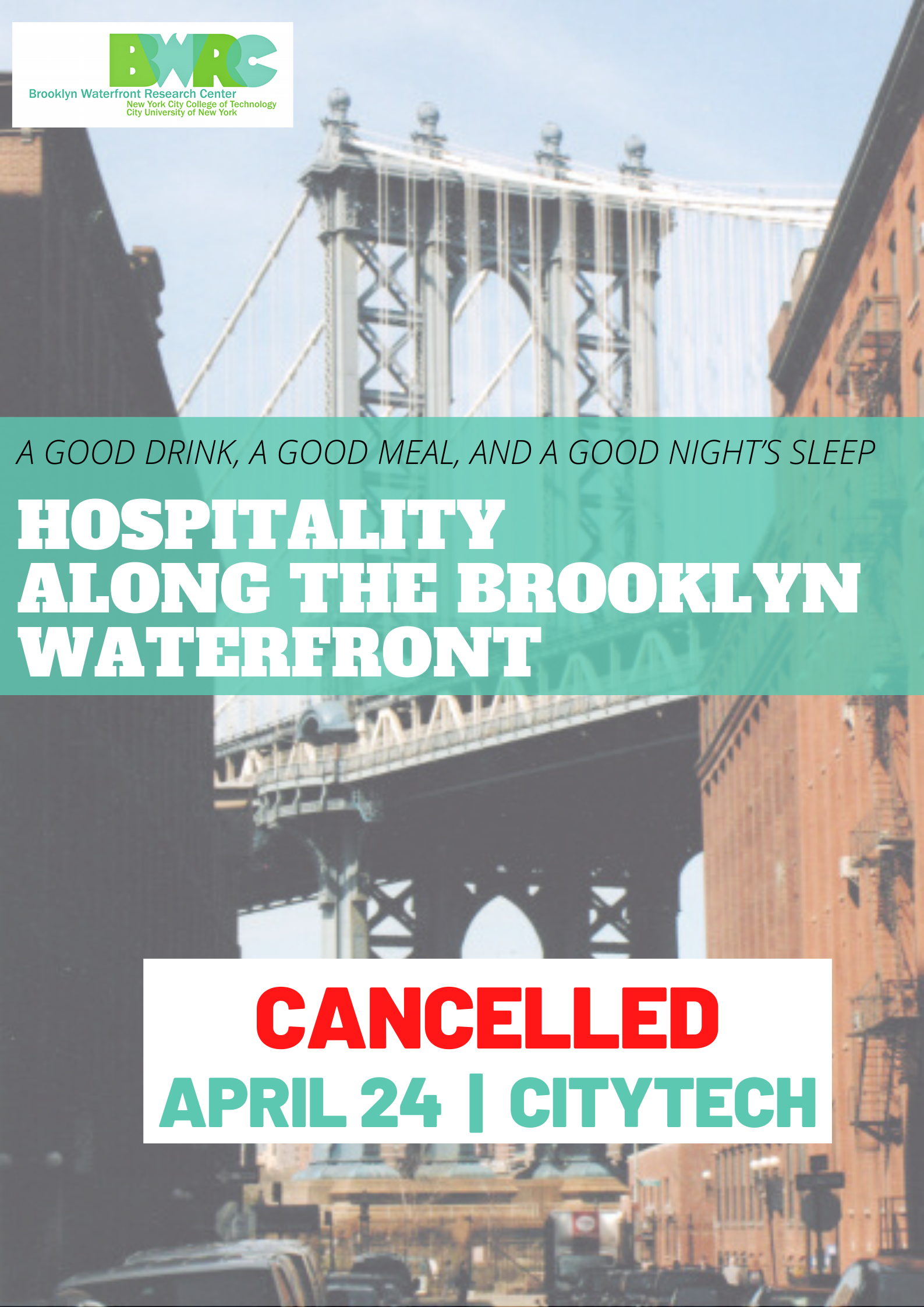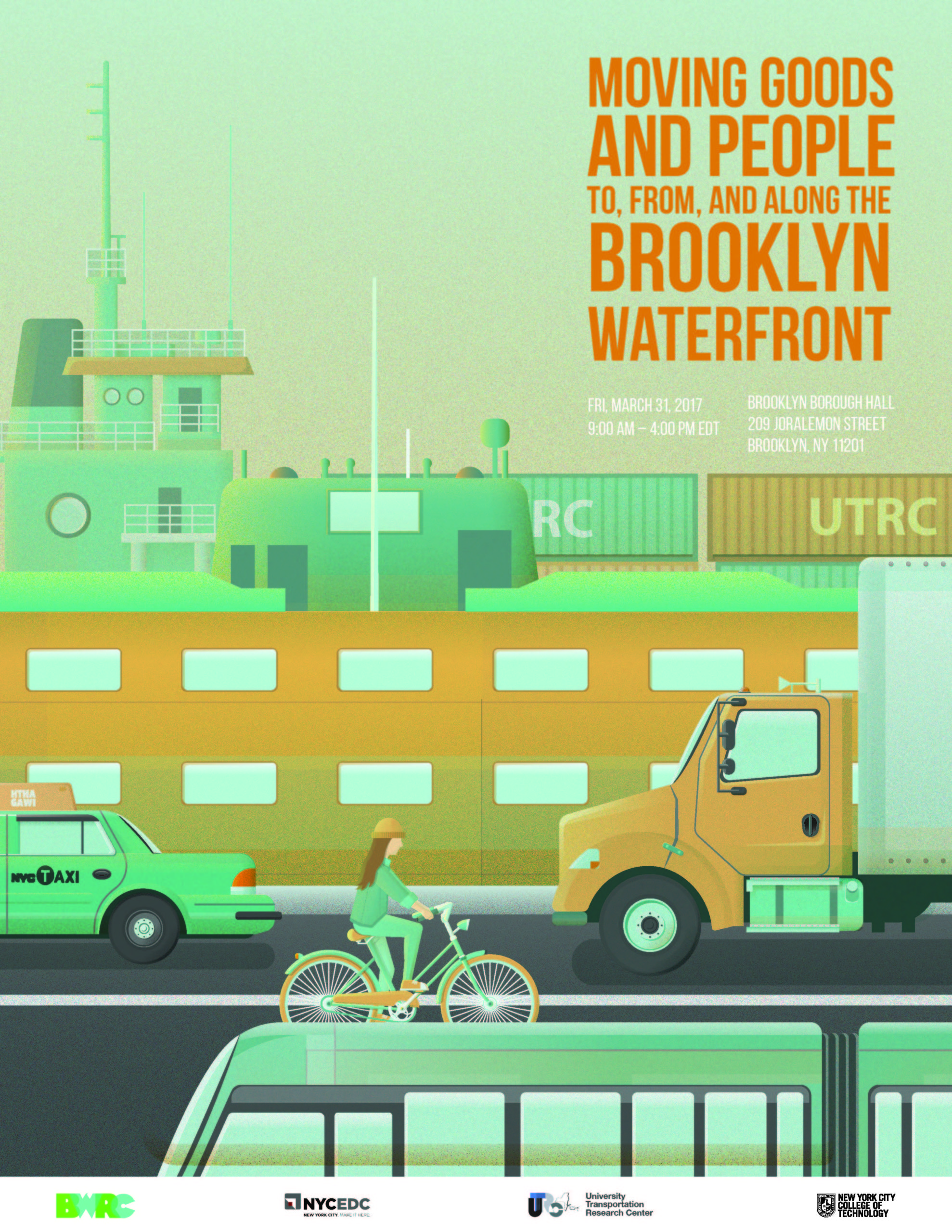Past Conferences:
2024 • 2023 • 2022 • 2021 • 2020 • 2019 • 2018 • 2017 • 2016 • 2015 • 2014 • 2013 • 2011
Is Brooklyn Tilting at Windmills?
The conference is a full-day event, free and open to the public, with a lunch. The morning session will feature speakers talking about federal, state, and city efforts to bring Offshore Wind Energy to Brooklyn. The speakers will include representatives from the US Department of Energy, NYSERDA, the NYC Economic Development Corporation, Equinor, and Con Edison. The afternoon session will focus on Brooklyn—first with a keynote during lunch on “A Just Transition to Clean Energy” and then with panels on business and workforce opportunities.
Hospitality in a Time of Plague
Everyone remembers the seven o’clock applause as Brooklyn residents took to their stoops and balconies and sidewalks to clap for the hospital workers changing shifts as they were leaving or entering the hospitals before or after attending to the borough’s many Covid patients. Those hospital workers were, in the parlance of the pandemic, essential workers. Also essential workers, but largely unsung were the food workers and deliverers. Many industries were affected by the pandemic in New York, but perhaps none more so than the food industry, where restaurants were mandated to close.
This full-day, virtual conference examined what the Covid-19 pandemic did to the restaurant industry along the Brooklyn waterfront through panels composed of industry leaders, workers, owners, and city and borough officials.
Sea Level Rise and Brooklyn's Jamaica Bay Communities
This year marked the ten-year anniversary of Superstorm Sandy, a time when many of the city’s coastal vulnerabilities became glaringly apparent. Since then New York has taken major strides in making the coastline more resilient, yet immediate and long-term risks associated with global climate change and sea-level rise remain. Recent research on sea-level rise outlines the possibility, some would say probability, of the inundation, by the end of the century, of vulnerable communities along the Brooklyn waterfront, especially those along Jamaica Bay.
This full-day conference explored these possibilities and the questions they raised for Jamaica Bay: What is the science behind sea level rise predictions? How will sea level rise affect the communities surrounding Jamaica Bay? What actions are underway and what further actions are being planned to mitigate these impacts? The main question the conference will address is: What can be done if none of the planned measures prevents the inundation of Jamaica Bay’s vulnerable neighborhoods?
Science, Art and the Climate Crisis Along the Brooklyn Waterfront
Early observations of the changes in the climate that have led to our current climate crisis were made by scientists; however, it has not been scientists alone who have addressed this crisis. This conference explored the interdisciplinary ferment created by scientists, artists, activists, and others whose work grapples with climate change at the intersection of art, science, and the environment.
Bringing together a diverse array of scientists, artists and community members, we discussed and learned from the integration of artistic practice and scientific inquiry as a method of addressing the climate crisis globally and locally via the Brooklyn Waterfront.
CANCELLED: Hospitality Along the Brooklyn Waterfront
The Brooklyn Waterfront Research Center cancelled its annual conference due to the Coronavirus lockdown. What is sad and deeply ironic is that the focus for this year’s conference was “A Good Drink, A Good Meal, and a Good Night’s Sleep: Hospitality along the Brooklyn Waterfront.” The conference was meant to look back on the history of hospitality along the waterfront and then to examine what was—until this year—a burgeoning industry. The pandemic continues to makes us wait in trepidation, anticipating how hospitality along the Brooklyn waterfront will be affected by Covid 19, a most inhospitable intruder.
For now, you might want to check out the White Paper commissioned by BWRC for the conference. Entitled, “From Brooklyn to ‘Brooklyn:’ The Cultural Transformation of Leisure, Pleasure, and Taste,” the paper offers a history of hospitality along the Brooklyn waterfront by looking back at the industry’s glory days during Brooklyn’s industrial past and tracing its decline and ultimate resurrection.
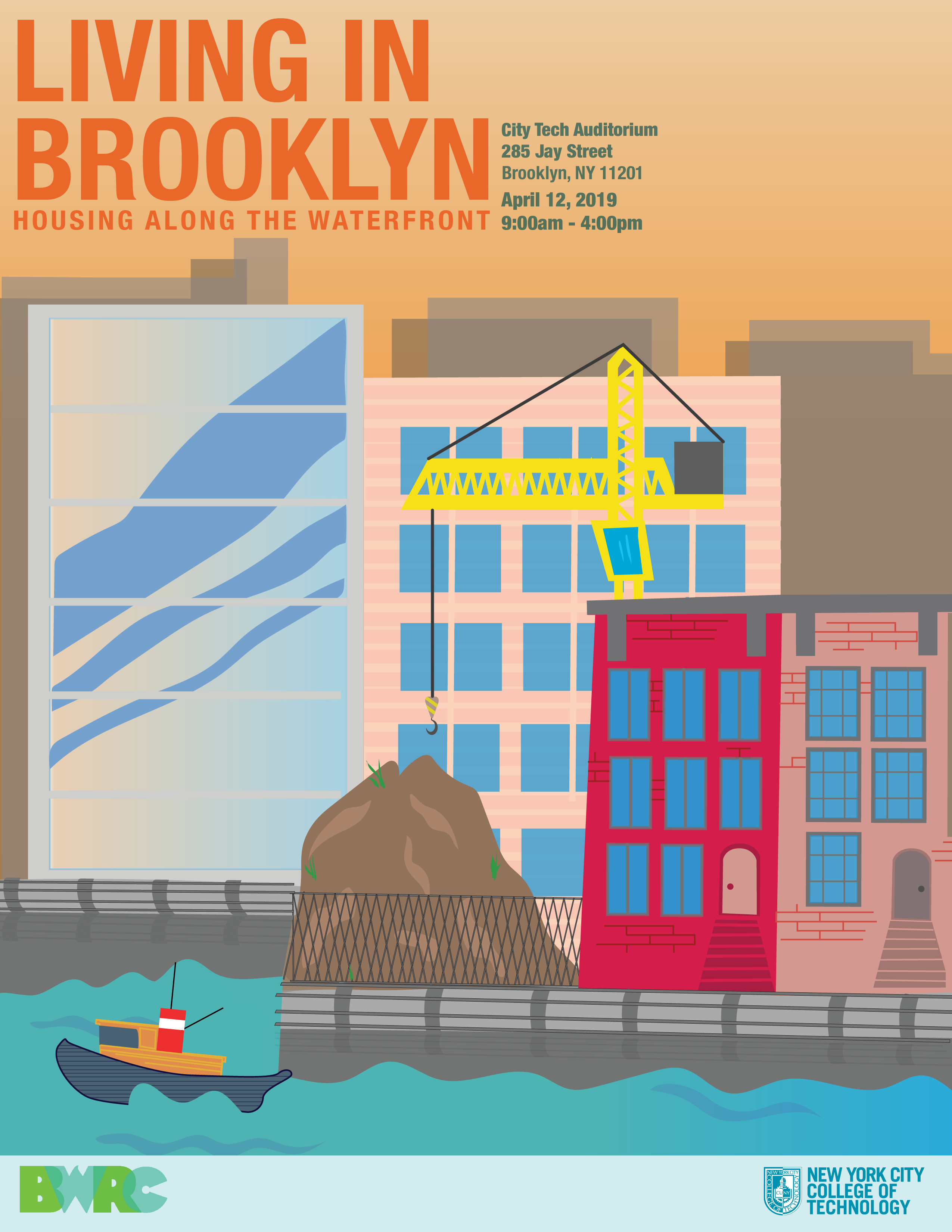
Living in Brooklyn: Housing along the Waterfront
The Brooklyn Waterfront Research Center (BWRC) presented Living in Brooklyn: Housing Along the Waterfront, a full-day conference exploring affordable housing in the communities along the Brooklyn waterfront. For its ninth annual conference, BWRC featured a series of panels and speakers that will explore the topic of housing affordability and resilience at the intersection of governmental efforts, public policy, and grassroots advocacy.
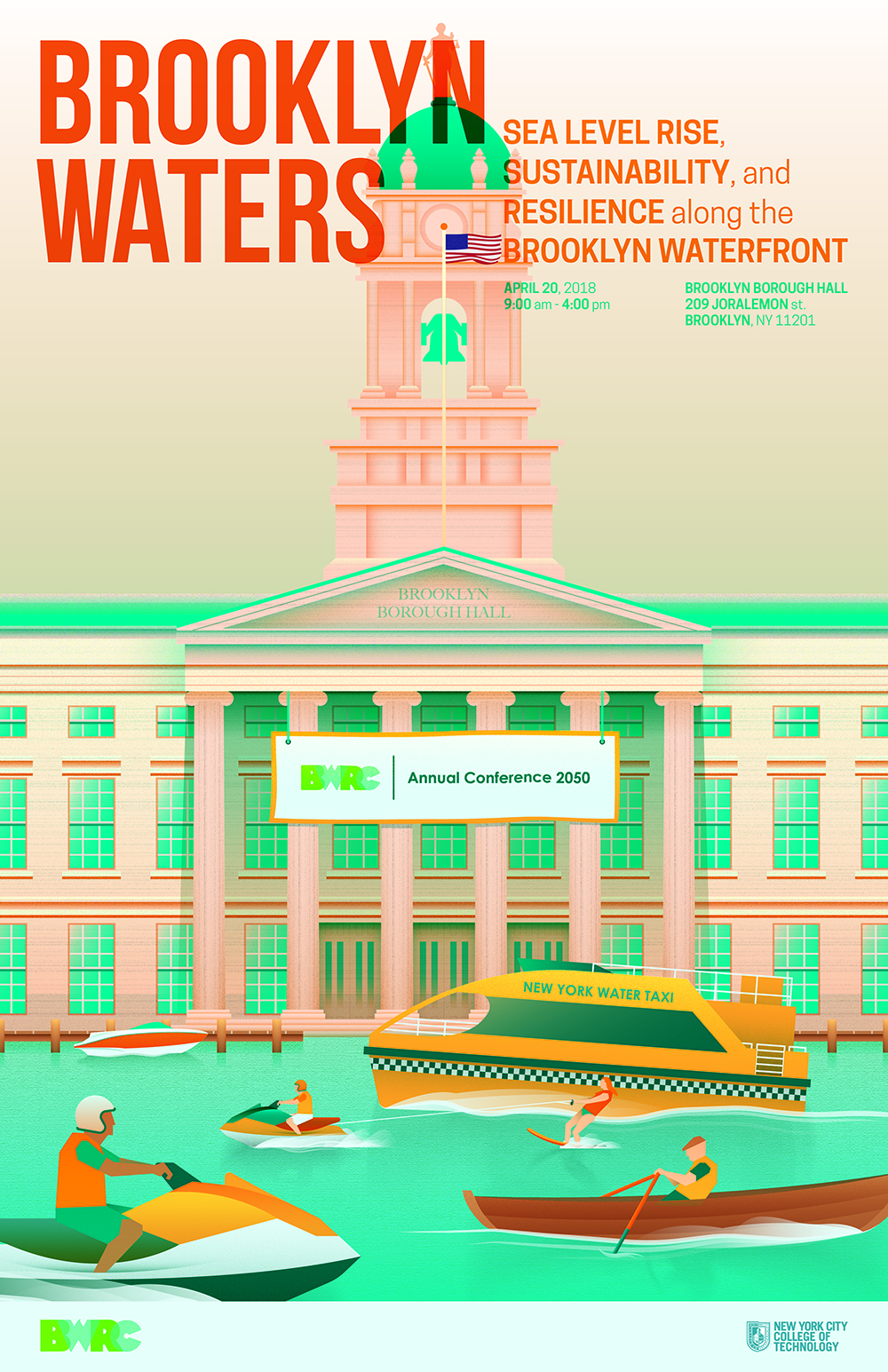
Brooklyn Waters: Sea Level Rise, Sustainability, and Resilience along the Brooklyn Waterfront
The Brooklyn Waterfront Research Center (BWRC) presents Brooklyn Waters, a full-day conference on sea level rise, sustainability, and resiliency along the Brooklyn waterfront. Brooklyn Waters will examine how preparation for storm surge and rising tides has already remade – and is set to radically remake – the coastal areas of Kings County.
While the Brooklyn waterfront holds much in common with other coastal regions—and with those of its sister boroughs— the challenges it faces are unique. The past two decades have ushered in a dramatic transformation of the Brooklyn waterfront district’s built environment. Now, we are faced with yet another dramatic waterfront transformation in the coming two decades, one the will be driven by the unwieldy forces of ecological systems.
Moving Goods and People To, From and Along the Brooklyn Waterfront
After more than a generation, the Brooklyn waterfront is moving once again, but it is a different kind of movement and for different reasons. This joint, full day conference, sponsored by two CUNY research centers, has as its goal as comprehensive a conversation as we can about the transportation needs of the communities, businesses, and visitors along the Brooklyn waterfront. Some of the questions that will be asked are: Have those needs been studied? Who are the community-based actors working on these issues and what are they saying? How are city, state, and local officials planning to address the issues?
Trying to answer these and other transportation questions will be our keynote lunch speaker, Congressman Jerrold Nadler, representatives of maritime industries, elected and appointed officials, representatives from waterfront communities, developers of residential, commercial, and industrial properties, and transportation scholars.
The Past, Present, and Potential Future of Manufacturing Along the Brooklyn Waterfront
BWRC’s Fifth Annual Conference will examine whether recent developments can lead to the growth of a new kind of manufacturing that will be sustainable, or whether they are just a slight interruption in an inexorable march toward residential development and service sector employment along the Brooklyn waterfront.
As is customary, the half-day conference will begin with a historical overview that will chart the rise and fall of manufacturing along the Brooklyn waterfront. A keynote speaker will address the current state of manufacturing along the waterfront and prospects and visions for the future. Three panels will then explore a series of issues including innovations in manufacturing, land use issues,workforce development, infrastructure needs and development, and the possible effects of climate change and sea level rise.
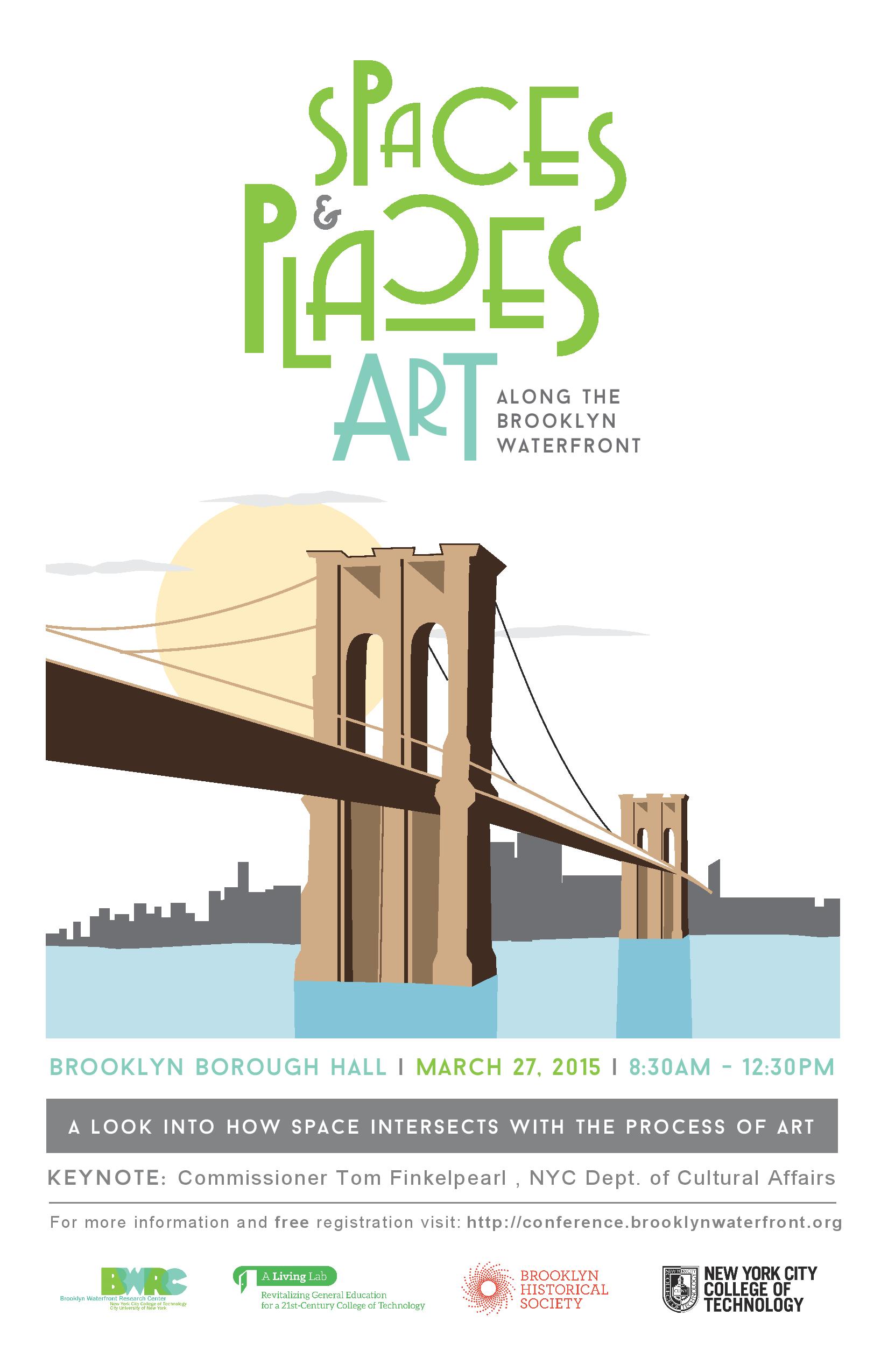
Spaces & Places: Art Along the Brooklyn Waterfront
The Brooklyn Waterfront Research Center and the Brooklyn Historical Society present a half-day conference discussing the evolution of the way art has been made, shown, and sold along the Brooklyn waterfront.
The conference will open with a Keynote by New York Department of Cultural Affairs Commissioner Tom Finkelpearl. It will continue by offering a historical overview of art in the borough over the centuries, taking us to the recent past. It will then use panels to open a discussion among artists, gallery owners, art distributors, and those who, in one way or another, make spaces available for the “process of art.”
The question implicit in all these discussions will be, “how much space and what kind of space is available for the process of art along the Brooklyn waterfront and who is responsible, if anyone, for insuring that such space continues to be available?”
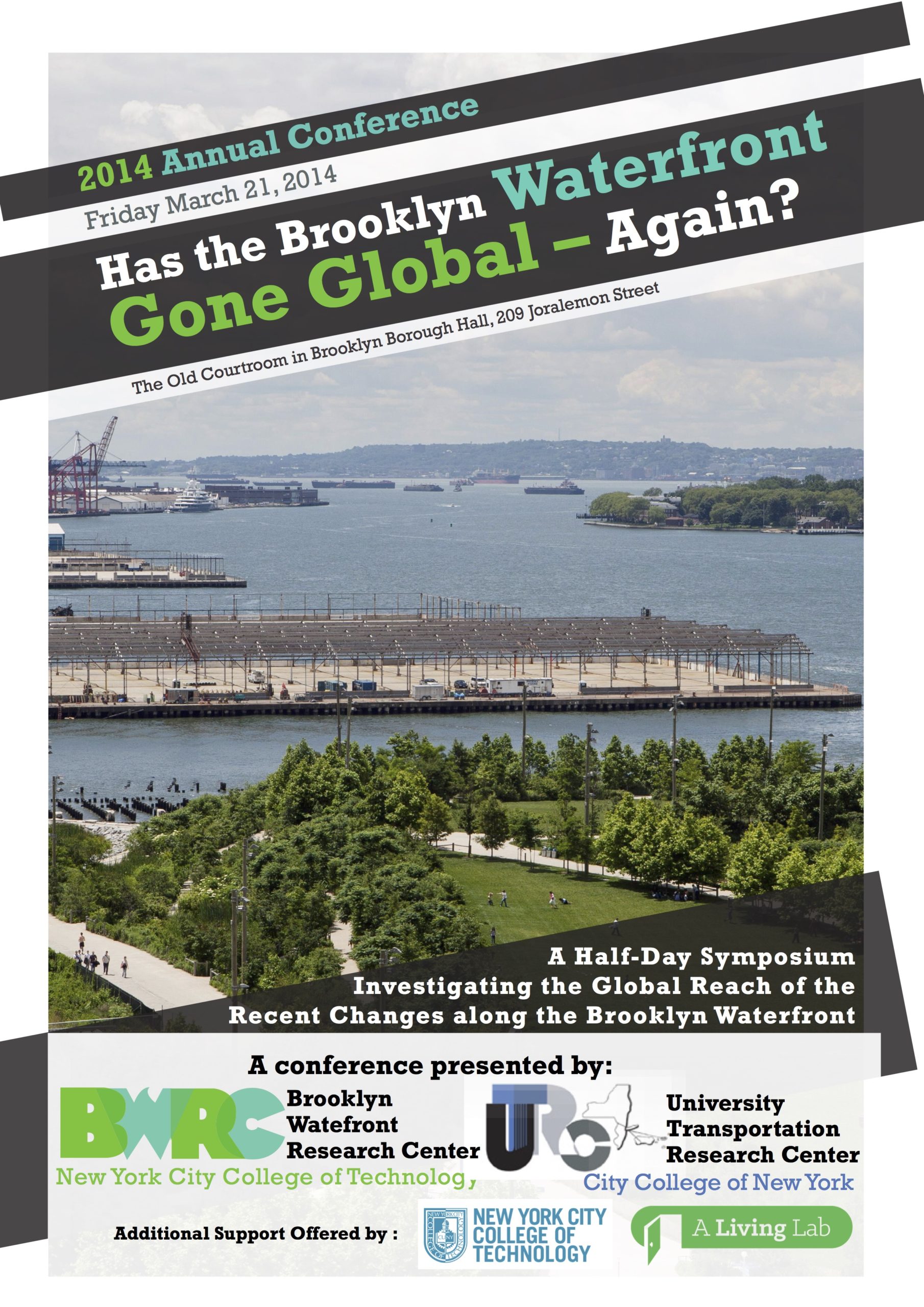
Has the Brooklyn Waterfront Gone Global -- Again?
The Brooklyn Waterfront Research Center (BWRC) presents Brooklyn Waters, a full-day conference on sea level rise, sustainability, and resiliency along the Brooklyn waterfront. Brooklyn Waters will examine how preparation for storm surge and rising tides has already remade – and is set to radically remake – the coastal areas of Kings County.
While the Brooklyn waterfront holds much in common with other coastal regions—and with those of its sister boroughs— the challenges it faces are unique. The past two decades have ushered in a dramatic transformation of the Brooklyn waterfront district’s built environment. Now, we are faced with yet another dramatic waterfront transformation in the coming two decades, one the will be driven by the unwieldy forces of ecological systems.
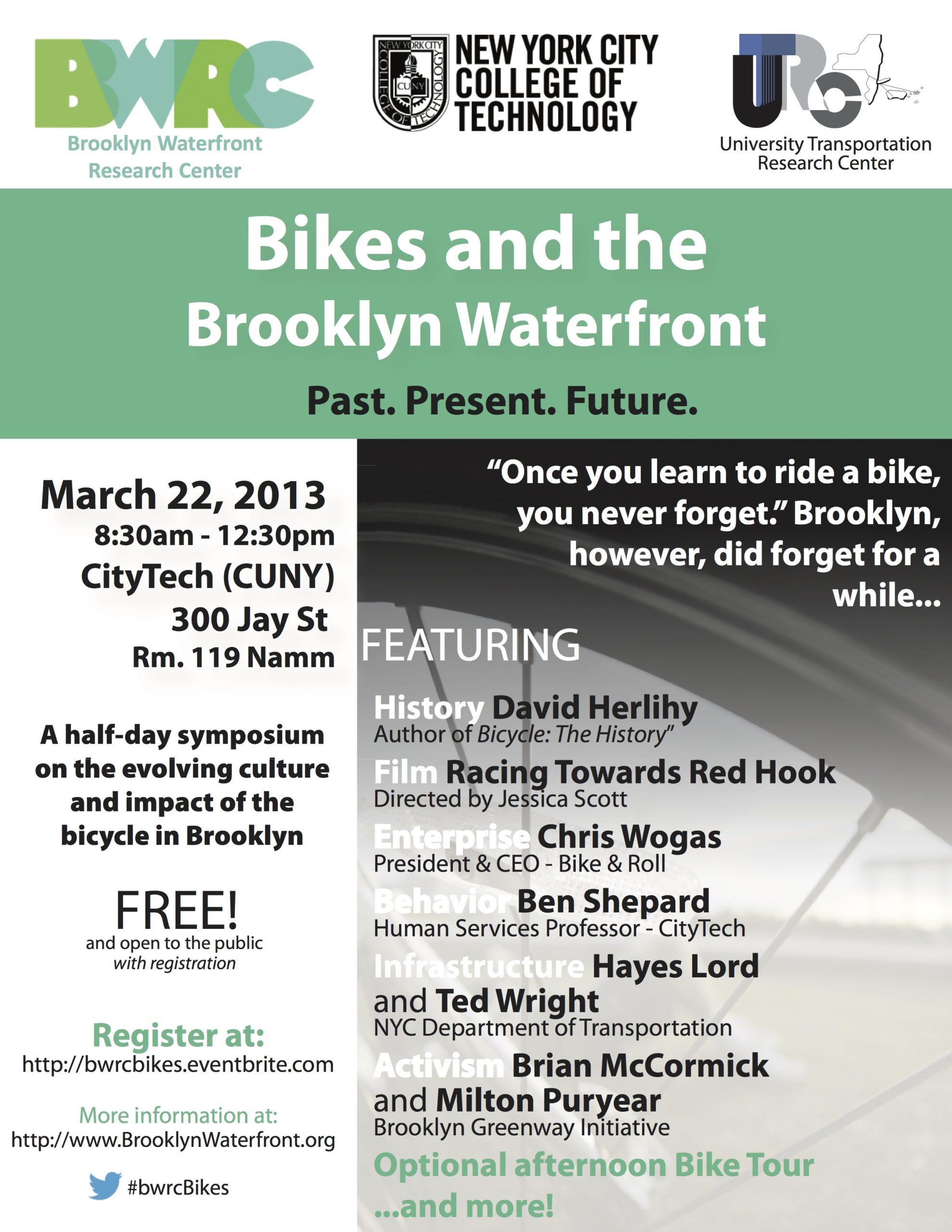
Bikes and the Brooklyn Waterfront
Once you learn
The Brooklyn Waterfront Research Center (BWRC) presents Bikes and the Brooklyn Waterfront, a conference exploring the history and progress of the bicycle.
BWRC will feature a series of panels and speakers that will explore the topic of housing affordability and resilience at the intersection of governmental efforts, public policy, and grassroots advocacy.

The Waterfront: A Brooklyn Model for Preservation and Change
The Brooklyn Waterfront Research Center (BWRC) presents Brooklyn Waters, a full-day conference on sea level rise, sustainability, and resiliency along the Brooklyn waterfront. Brooklyn Waters will examine how preparation for storm surge and rising tides has already remade – and is set to radically remake – the coastal areas of Kings County.
While the Brooklyn waterfront holds much in common with other coastal regions—and with those of its sister boroughs— the challenges it faces are unique. The past two decades have ushered in a dramatic transformation of the Brooklyn waterfront district’s built environment. Now, we are faced with yet another dramatic waterfront transformation in the coming two decades, one the will be driven by the unwieldy forces of ecological systems.

This entry is licensed under a Creative Commons Attribution-NonCommercial-ShareAlike 4.0 International license.
